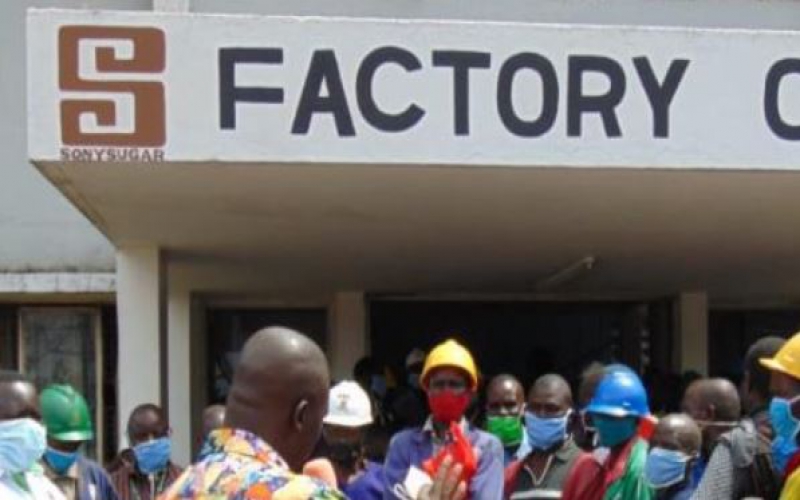
Sugarcane growing Counties are free to apply for leasehold to run the State-owned sugar factories should they have the capacity to do so.
The Council of Governors has given its members a green light to apply or bid for the management of the struggling factories after the recent waiver of Sh62 billion debts by the Government.
The Council of Governors Chairman Wycliffe Oparanya said that the Counties are now allowed to apply for lease licenses just as other successful local and international industry investors.
SEE ALSO: Nyong’o, MP clash over Sh6.3b road
”The sugarcane growing Counties are not restricted from applying to run the sugar factories. They can also apply if they feel they have the requisite potential to do so,” he asserted.
Already, the government has started the process of leasing out five state-owned sugar millers whose operations have for years been crippled by debts and mismanagement.
Those targeted for the long-term lease model are Chemilil, Miwani (in receivership), Muhoroni (in receivership), Nzoia, and South Nyanza Sugar (Sony Sugar) companies.
The lease of the firms is expected to enhance competitiveness and services in the sugar sector and make them more attractive to new prospective investors.
The sugar industry is a source of income for more than 500,000 smallholder farmers who supply 90 per cent of the raw material to the millers daily.
Oparanya explained multiple benefits are implying that leasing the firms is a better option as compared to an outright purchase, auction or sale of the factories.
”For sugar factories assets with a shorter life, for example, it would be wiser to keep a lease on as opposed to a buyout. This is why I support the lease option,” Oparanya said.
Speaking to the Standard in an interview, the governor welcomed plans by the State to salvage the lucrative sugar industry on the brink of collapse by leasing them out at the right time.
”Leasing is a far more cost-effective way of managing the sugar firms, although some investors may hesitate from leasing because of building potential equity,” Oparanya said.
According to Cabinet Secretary for Agriculture Peter Munya, the State expects to lease the factories for at least 25 years before they are taken back.
”If you want sugar factories for a short period less than 20 years then leasing is by far the best option over privatisation of the factories,” Oparanya explained.
He said leasing can be utilised to create smaller payments every month, or yearly basis leaving the sugar firms with more capital to invest in new machinery to boost production.
”When you keep all this in mind, it makes more sense, both financially and economically, to go for an option that allows more flexibility and more cash flow,” he said.
But he claimed he will not apply to lease Kakamega based Mumias Sugar factory. Instead, he has chosen to factor in Sh100 million for cane development.
”Given that I have only two years for my term to expire I can’t enter into a lease arrangement,” Oparanya told the Standard, adding that he chose to focus on empowering cane farmers to plant more cane.
”What will be key is the raw material, because the factory cannot run without it and yet some farmers don’t have the cash to develop their cane. We will give them farming loans on standing cane,” he said.
Oparanya claimed that for the last ten years cane farmers have not been able to access loans to develop their farms as it was before because the sugar factories were heavily indebted.
Initially, the factories were issuing loans to farmers on standing cane. But because of their financial problems, this has not been possible due to the increasing rate of defaults in payment.
Oparanya disclosed that this financial year, his administration has factored in Sh100 million for farmers to motivate them to grow more cane to boost their income per capita.
There has been mixed feelings in the past over the mode of salvaging the cash trapped sugar factories with some people proposing privitising or even purchase of new mills.
Most of the factories milling machines are currently obsolete or worn out having been installed in the 1970’s when the firms came into operation.
Kenya national sugarcane federation secretary general Ezra Okoth said the cost of maintaining them to operate at their installed capacity, has been a big problem and so weighing the cost benefits to think of leasing them was a good idea.
He hoped that the State would ask the investors to procure and replace new milling machines or repair the broken parts to boost their optimal production.